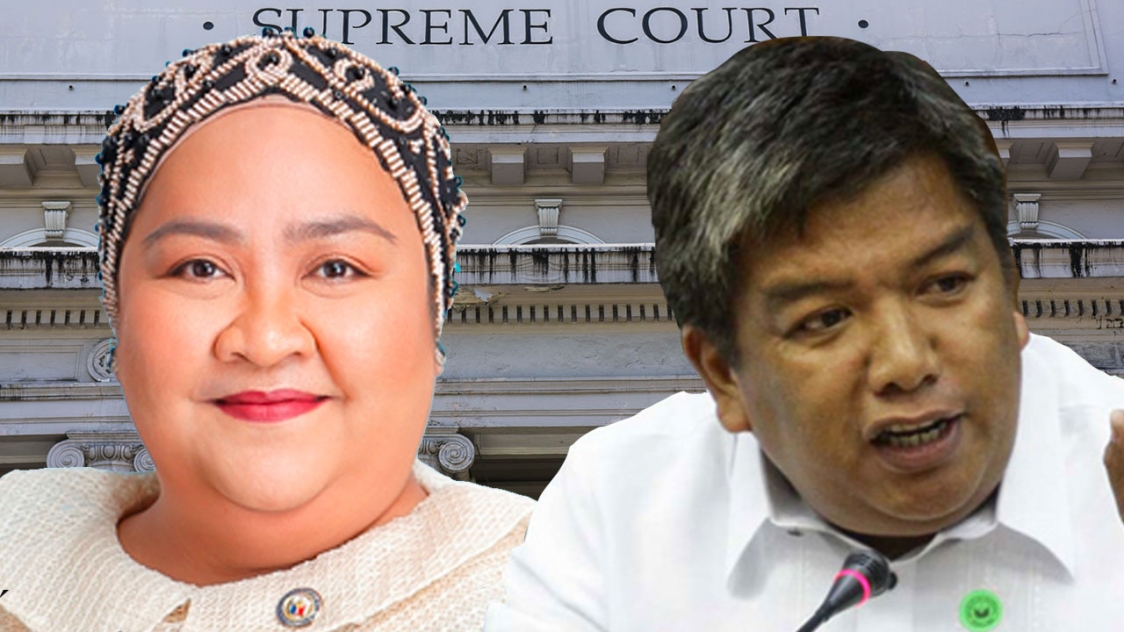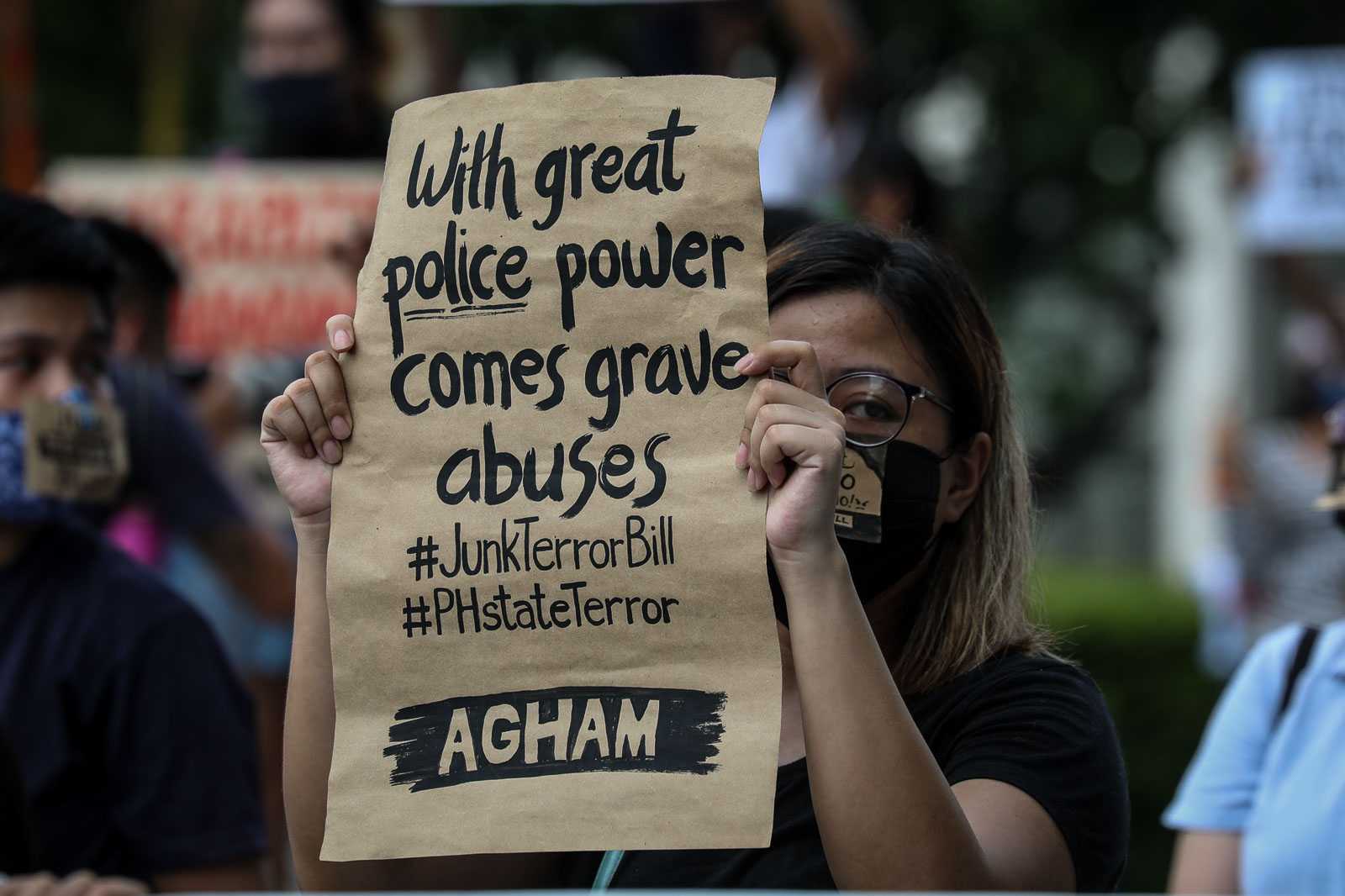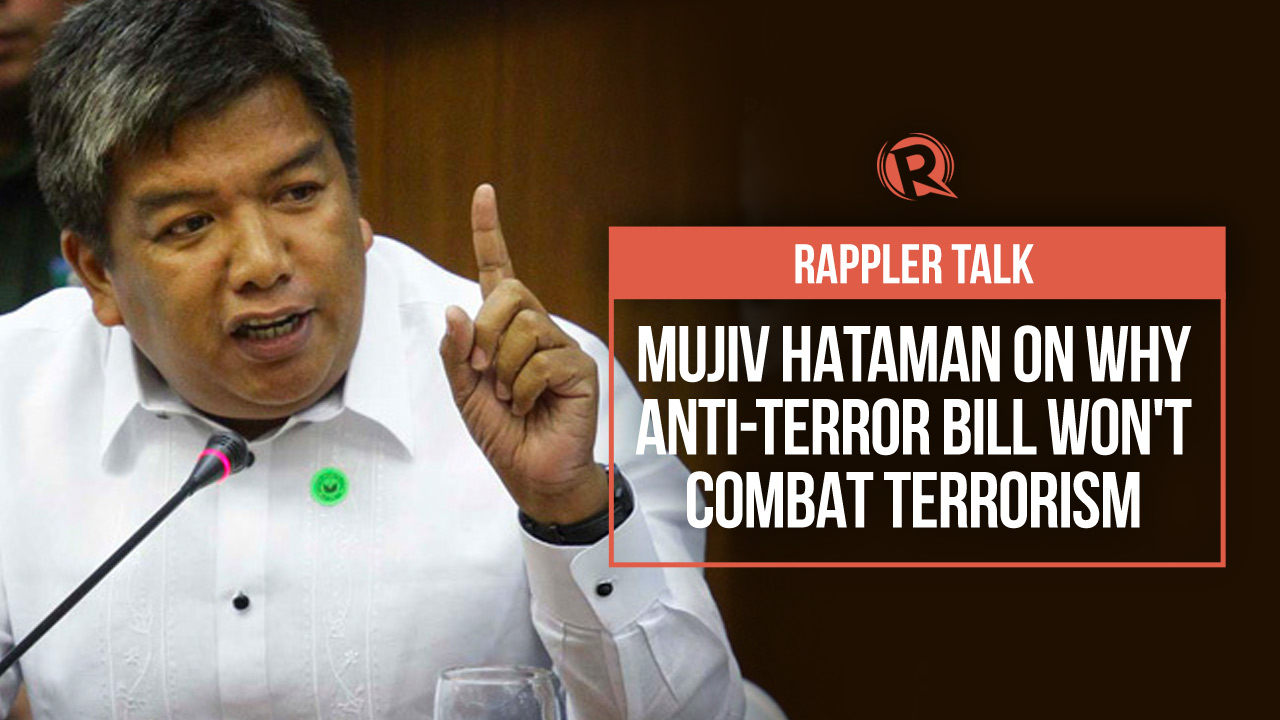
'The anti-terror law threatens to legalize clearly abhorrent state actions' against the Bangsamoro people
There are so far 22 petitions against the anti-terror law, but a Moro petition is deeply personal and revisits the wounds of a long persecuted community that's now asking the Supreme Court to get rid of a law seen to victimize them even more.
Anak Mindanao Representative Amihilda Sangcopan and Basilan Representative Mujiv Hataman led a group of Moros composed of lawyers, artists, and preachers, in filing on Tuesday, August 4, the 22nd petition against the anti-terror law, the 2nd Moro group to do so.
Their premise is simple: Muslims and Moros alike have long been victims of cultural and religious discrimination, not least at the hands of government forces who have arrested and jailed many of them for mistaken identity.
"In Mindanao, especially in Muslim communities, it is a frequent occurrence that mosque-goers, Quran reciters, prayer-callers, even simple market vendors and truck drivers are dragged away by law enforcers – simply on suspicion that they are supporters, relatives, co-conspirators or active participants in acts of rebellion, kidnapping and what now constitutes terrorism," said the Hataman petition.
"The anti-terror law threatens to legalize these clearly abhorrent state actions," said their 83-page petition that seeks to declare the anti-terror law unconstitutional, and asks the Court to immediately stop its implementation by way of a Temporary Restraining Order (TRO).
Mindanao lawmakers: Anti-terror bill will further incite violence, not end terrorism
Anak Mindanao Representative Amihilda Sangcopan and Basilan Representative Mujiv Hataman led a group of Moros composed of lawyers, artists, and preachers, in filing on Tuesday, August 4, the 22nd petition against the anti-terror law, the 2nd Moro group to do so.
Their premise is simple: Muslims and Moros alike have long been victims of cultural and religious discrimination, not least at the hands of government forces who have arrested and jailed many of them for mistaken identity.
"In Mindanao, especially in Muslim communities, it is a frequent occurrence that mosque-goers, Quran reciters, prayer-callers, even simple market vendors and truck drivers are dragged away by law enforcers – simply on suspicion that they are supporters, relatives, co-conspirators or active participants in acts of rebellion, kidnapping and what now constitutes terrorism," said the Hataman petition.
"The anti-terror law threatens to legalize these clearly abhorrent state actions," said their 83-page petition that seeks to declare the anti-terror law unconstitutional, and asks the Court to immediately stop its implementation by way of a Temporary Restraining Order (TRO).
Mindanao lawmakers: Anti-terror bill will further incite violence, not end terrorism

The Supreme Court en banc has so far just been consolidating petitions and asking government to answer them. The anti-terror law took effect on July 18 according to the government, although some petitioners say it took effect only on July 22.
Long history of discrimination
The first Moro petition, filed July 23 by a group led by former human rights regional chair Algamar Latiph, discussed in detail Bangsamoro's longtime struggle for freedom and liberty.
Their 79-page petition told stories of Moros oppressed by government forces just because they are "others," saying that "othering influenced the use of potent military force."
The Latiph petition attached a list of 44 Moros wrongfully charged, arrested and jailed, including children, for over a year because of suspicion of their ties to the group behind the 2013 Zamboanga siege.
The cases of mistaken identity have been repetitive, said the petitioners, calling law enforcers simply reckless or guided by policies shaped by historical prejudice.
The Latiph petition cited surveys – 55% of Filipinos think Muslims are probably more prone to run amok, 47% believe that Muslims are probably terrorists or extremists.
"Our apprehensions on abuse and arbitrariness of the enforcement of vague law are not premised on empty facts. We have cases of mistaken identity involving Bangsamoro. And we have concluded that such mistaken identity victimization shows pattern, widespread, and systemic in singling out the Muslims, Bangsamoro," said the Latiph petition.
Freedom of religion
Not only does the Constitution protect the freedom of expression, it also protects the "free exercise and enjoyment" of religion.
The Hataman petition fears that their Islamic practices and expressions may be taken as inciting to terrorism.
MUST WATCH
Rappler Talk: Mujiv Hataman on why anti-terror bill won't combat terrorism

The Hataman petition discussed how, because of atrocities committed by extremists, the word jihad had come to be associated with terrorism.
"In its most general meaning, jihad refers to the obligation incument on all Muslims to follow and realize God's will: to lead a virtuous life and to extend the islamic community through preaching, education, example, writing," said the Hataman petition.
The Hataman petition said that ever since the 9-11 attack in the United States, Muslims had been deterred even from just discussing jihad academically.
"This labelling and the way it has been connected to Islam has prevented Muslims from openly expressing their belief in Jihad to avoid suspicion of inciting or proposal to commit terrorism," said the Hataman petition.
The Hataman petition also said that before they can freely exclaim "Allahu Akbar" when hearing good news or praising Allah.
"Now we have to be first conscious of the place and of our surroundings," said the petition.
The Hataman petition ties their struggles to freely exercise their religion to the overarching legal argument against the anti terror law – that it violates the constitutional right to free speech.
"[The] anti-terror law clearly constitutes a prior restraint on free expression because it compels Muslim preachers and fathers from freely and publicly discussing their religious beliefs," said the petition.
In the Latiph petition, the Moros said they are one in seeking to uphold the constitutional protection of freedom and liberty of all – but one thing hits close to home: that "the enforcement of the law will likely victimize Bangsamoro people."
https://rappler.com/nation/moros-file-petition-vs-anti-terror-law
No comments:
Post a Comment
Note: Only a member of this blog may post a comment.